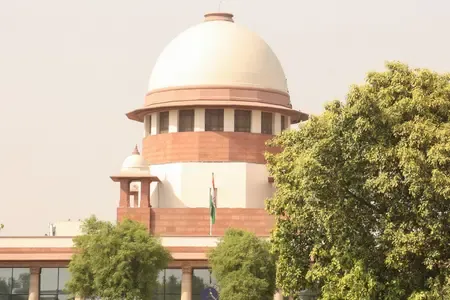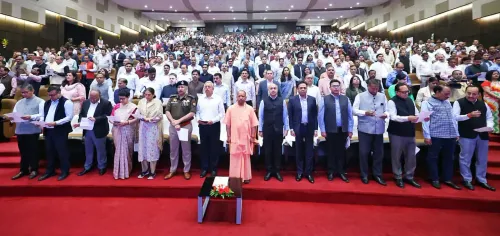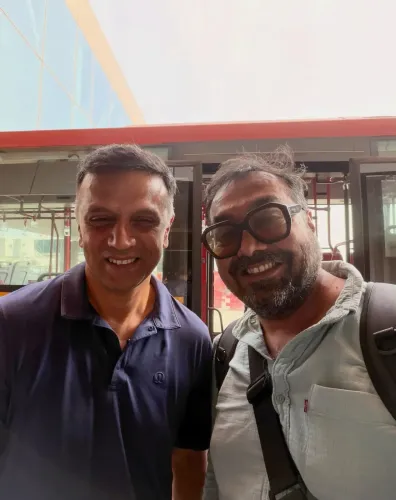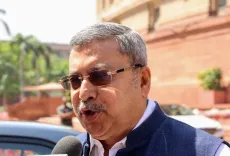Did India's Surgical Strikes After the Uri Attack Revolutionize Its Counter-Terrorism Strategy?
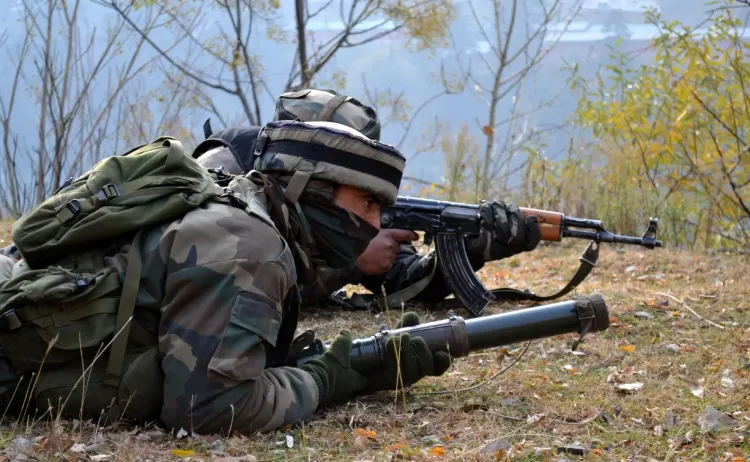
Synopsis
Key Takeaways
- Retaliatory surgical strikes marked a significant shift in India's counter-terrorism strategy.
- Public acknowledgment of military actions reinforced national sentiment.
- International support emerged despite Pakistan's denials.
- Diplomatic isolation for Pakistan increased post-strikes.
- Prime Minister Modi's commitment to national security resonated widely.
New Delhi, Sep 18 (NationPress) India's reaction to the 2016 Uri terrorist attack, executed through retaliatory surgical strikes merely 11 days later on terrorist infiltration bases in Pakistan-occupied Kashmir (PoK), represented a pivotal transformation in the nation’s counter-terrorism tactics, as reported on Thursday.
Historically, New Delhi had depended on diplomatic protests and military posturing in response to cross-border assaults, but the Uri assault shifted that paradigm.
According to a report in Brighter Kashmir, the public acknowledgment and proclamation of the surgical strikes illustrated India’s commitment to a proactive approach while maintaining restraint to avert a prolonged conflict.
“Domestically, these strikes validated public sentiment and reinforced political unity regarding national security. The professionalism of the Army garnered widespread acclaim alongside the government's determination. Internationally, despite Pakistan’s denial, several nations discreetly supported India's right to defend itself against cross-border terrorism,” the report elaborated.
“For Pakistan, this incident represented a significant disadvantage. While Islamabad officially refuted India's claims, the strikes attracted heightened international scrutiny concerning its enduring associations with terrorist groups. Diplomatic isolation intensified: a scheduled South Asian Association for Regional Cooperation (SAARC) summit in Islamabad was thwarted after key members, including India, Afghanistan, Bhutan, and Bangladesh, withdrew, accusing Islamabad of fostering terrorism,” it added.
On September 18, 2016, at approximately 5:30 AM, four heavily armed terrorists breached the army base near the Line of Control (LoC) and executed a pre-dawn offensive against unsuspecting soldiers in temporary accommodations. The militants utilized grenades and incendiary rounds, igniting a massive fire that triggered a series of explosions, resulting in the deaths of 18 soldiers and numerous injuries. This attack was one of the deadliest on an Indian Army facility in over a decade, leaving both the military and the nation in profound shock.
The report underscored that the brutality and audacity of the Uri attack attracted global attention, with leaders from the US, Russia, and the EU condemning the violence and offering condolences.
However, for India, the Uri incident transcended mere terrorism; it was a blatant provocation that necessitated a strategic and landmark response.
The report highlighted overwhelming public sentiment across India for a robust reaction to the terrorist assault. Prime Minister Narendra Modi pledged to bring the culprits to justice, asserting, “The sacrifice of our soldiers will not be in vain.”
“Just eleven days following that warning, on September 29, 2016, India executed what became known as the Surgical Strikes. Special forces commandos from the Indian Army's Paras (Parachute Regiment Special Forces) crossed the LoC under the cover of darkness to target terrorist infiltration bases in PoK,” the report concluded.

